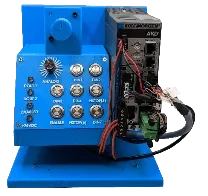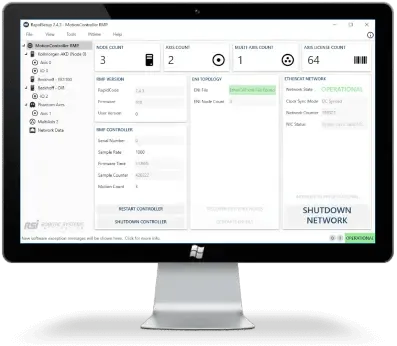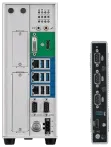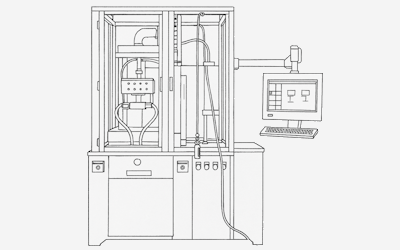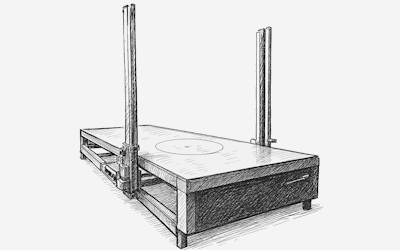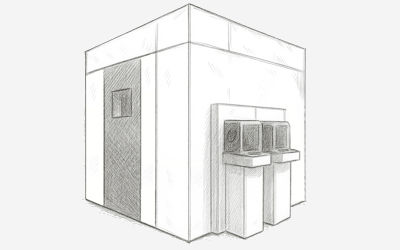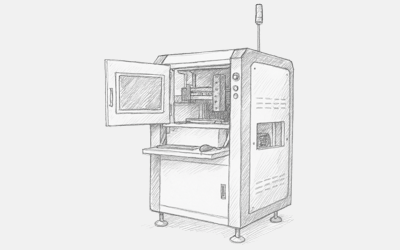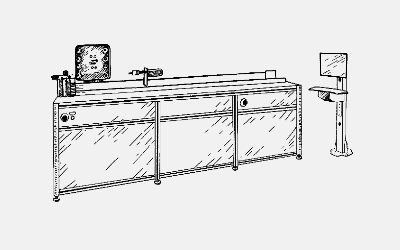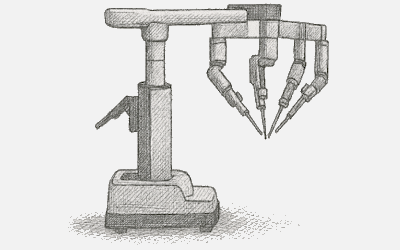Case Study
Tracking Systems
OEMs in the defense and aerospace sectors deploy real-time antenna tracking systems using the RMP, a PC-based EtherCAT Master and Motion Controller. These systems are engineered to track dynamic aerial objects — including satellites, aircraft, and missiles — with high-speed, precision movement. Using RMP as the EtherCAT master and Motion Controller, OEMs build systems that are not only fast and accurate, but also scalable and easy to maintain.
Requirements
OEMs needed a motion control system capable of tracking fast-moving aerial targets using ground-based antennas. These antennas must reposition in real time based on coordinate streams coming from radar or visual tracking systems. The solution required:
- Real-time determinism for updating multiple motors
- Support for high-frequency position and velocity commands
- Coordinated multi-motor operation (e.g., dual azimuth/elevation motors)
- Seamless integration with external time-stamped data
- Ruggedized support for harsh environments
Additionally, customers preferred a Linux-based solution and required the ability to integrate with remote UI software using gRPC.
Solution
RMP EtherCAT Master and Motion Controller
To meet these challenges, OEMs adopted the RMP for its PC-based EtherCAT control architecture. RMP supports high-frequency motion updates, deterministic EtherCAT synchronization, and features like dual-loop control for backlash compensation. Key aspects of the solution included:
Real-Time Architecture
RMP achieves real-time deterministic performance by supporting both Linux and Windows platforms, optimized specifically for time-critical motion applications. On Linux, RMP runs with the PREEMPT_RT patch, which transforms the standard kernel into a fully preemptible one. This enables the system to achieve sub-microsecond response times and consistent real-time behavior suitable for high-frequency servo tasks.
For customers preferring a Windows-based environment, RMP also supports INtime, a real-time extension that runs alongside Windows and provides a dedicated RTOS environment. INtime ensures hard real-time capabilities by isolating deterministic operations from the standard Windows kernel.
Motion Control
Depending on the tracking strategy, customers utilized either:
- Open-loop tracking using Point-To-Point profiles like Move Trapezoidal for predictable trajectories (e.g., satellites)
- Closed-loop tracking by appending velocity commands updated every few milliseconds for dynamic targets (e.g., UAVs)
Both motion profiles benefit from RMP’s ability to append motion commands and perform smooth velocity blending.
High-Resolution Timing Integration
To ensure accurate synchronization between the antenna and external target coordinates, RMP systems use the Beckhoff EL6688 EtherCAT module to align the motion control system with an external clock source such as GPS time, IRIG-B, or IEEE 1588 PTP (Precision Time Protocol). This module acts as a high-precision time synchronization gateway, enabling the EtherCAT Distributed Clocks system to synchronize with external time bases.
As a result, when coordinate data is received with a timestamp—such as from a radar, optical tracker, or trajectory planning system—RMP can execute motion commands that align precisely with the intended time reference. This synchronization is critical for tracking high-speed targets like satellites, where even slight temporal drift can degrade pointing accuracy.
Multi-Motor Coordination
Larger systems with dual motors per axis (for torque and redundancy) required precise coordination. RMP supported torque following, gantry logic, and grouped axis control to ensure both motors moved synchronously.
Feedback and Environmental Compensation
To counteract backlash, wind loading, and mechanical compliance, OEMs used RMP’s dual-loop feedback capability. This involved closing the outer loop using a secondary encoder mounted directly on the antenna structure. The system also implemented IMU integration and brake health monitoring within the real-time cycle.
Fiber-Based EtherCAT Extension
In installations where the antenna pedestal is far from the control room, OEMs used the Beckhoff EK1501-0100 EtherCAT Fiber Coupler. This allowed EtherCAT to span up to 2 km over fiber while maintaining full real-time determinism and electrical isolation from lightning or EMI.
Results
By deploying RMP, OEMs successfully:
- Achieved <1 µs jitter in multi-axis motion
- Executed trajectory commands at 1 kHz
- Maintained pointing accuracy despite wind, vibration, and mechanical wear
- Integrated IMUs and PPS timing for robust, real-time corrections
- Provided remote control via gRPC to UI and trajectory software
- Streamlined development with reusable control software across platforms
These improvements enabled both fixed and mobile antenna tracking systems to perform with high reliability and accuracy in demanding operational environments.
Why OEMs Choose RMP
- High-Performance EtherCAT Master: Delivers consistent, deterministic motion control across all nodes
- Flexible OS Support: Runs on Linux and INtime to support developer preferences and real-time demands
- Programming Languages: Developers can use C++, C#, Python, or VB.NET on Linux or Windows. The RapidCode API is consistent across platforms.
- Open gRPC API: Remote user applications and UIs integrate seamlessly with the motion core
- Dual-Loop and Multi-Axis Control: Ideal for managing backlash and coordinating multiple motors
- Sensor Fusion Ready: Accepts real-time data from IMUs, GPS, and external tracking sources
- Robust Networking: Supports fiber and copper EtherCAT topologies, including long-distance runs
Conclusion
The RMP EtherCAT Master and Motion Controller empowers OEMs to build antenna tracking systems capable of real-time, precision control. By offering a unified platform for both open-loop and closed-loop applications, RMP simplifies integration and enhances performance. Whether tracking fast-moving satellites or unpredictable airborne objects, RMP delivers the motion intelligence needed for mission success.
Testimonial
Technologies
Benefits
Images
Additional
On this page

